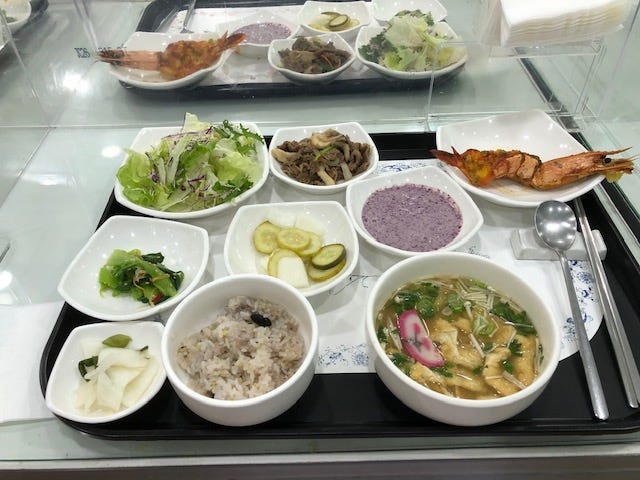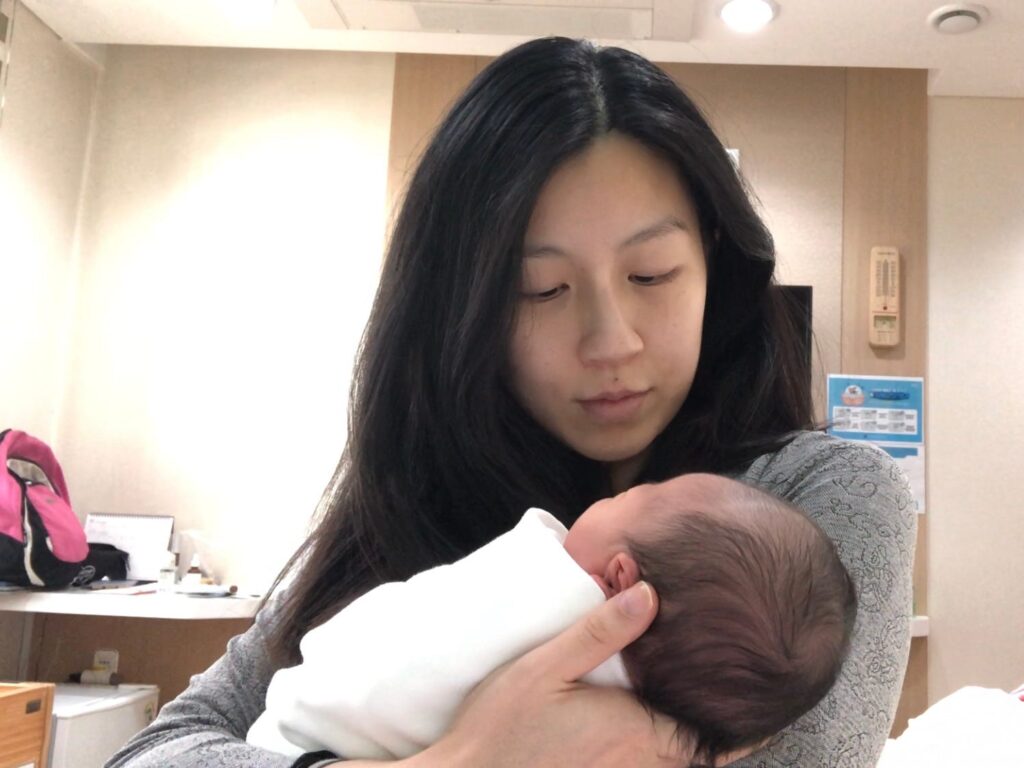- Rowena Shek is originally from Scotland but is living in South Korea.
- She stayed in a postpartum hotel where her baby was taken care of.
- While she worried about not bonding with her baby after her stay, that fear quickly dissipated.
This as-told-to essay is based on a conversation with Rowena Shek. It has been edited for length and clarity.
I was born in Scotland, but I am currently living and working in Seoul, South Korea, with my husband and daughter. When it came to pregnancy care and postpartum care, I discovered how different South Korea was compared to Scotland.
Postpartum care holds significant importance in Far East Asia, and South Korea offers unique options such as postpartum hotels or postpartum nannies and veteran maternity nurses who come to your house every day to cook, clean, and hold your baby while you nap and shower.
At first, the concept seemed shocking to me, considering I grew up in a country where mothers go home a few days after giving birth and take care of the baby on their own from day one. However, in South Korea, there's a transition to a postpartum hotel after two nights in the hospital, where maternity nurses provide dedicated care for both the mother and baby for one to two weeks. The purpose of these hotels is to ensure that new mothers can fully rest, recover, heal, reduce postpartum bleeding, and replenish nutritionally before taking on the responsibilities of caring for a newborn at home.
South Korea's approach to postpartum care has opened my eyes to a different perspective, and looking back, staying at a postpartum hotel has been one of the best decisions I made as a mother.
At first, I worried about bonding with my baby
Growing up in Scotland with a belief in the importance of bonding between mother and baby in those crucial early days, I was taken aback by the acceptance of Korean mothers in having their infants spend nights away from them for those early weeks, but at the same time, I couldn't help see the appeal in the idea of obtaining a full night's rest and recovering from any pain or stitches before returning home.
In my personal experience, I firmly believe that spending a week in a postpartum hotel to prepare oneself physically and mentally does not hinder the bond between a mother and her baby. During my stay, I regularly breastfed and pumped milk for the nurses to feed my baby at night, and upon returning home, I encountered no difficulties in bonding or breastfeeding my child.
The seven uninterrupted nights of sleep I experienced in the postpartum hotel made an incredible difference in my transition into motherhood. By the time I returned home to take on the responsibilities of being a full-time mom, my heavy bleeding had subsided, my stitches had healed, and I felt rested and ready for this new chapter. The opportunity to fully rest, heal, and replenish myself in a supportive environment allowed me to embrace the joy and challenges of caring for my newborn.

South Korea's approach challenged my preconceived notions of postpartum care and opened my eyes to the diverse ways different cultures embrace the transition into motherhood. The nurturing environments of postpartum hotels prioritize the well-being of mothers, thereby empowering them with support and confidence as they embrace their roles as new mothers.
Dit artikel is oorspronkelijk verschenen op z24.nl
